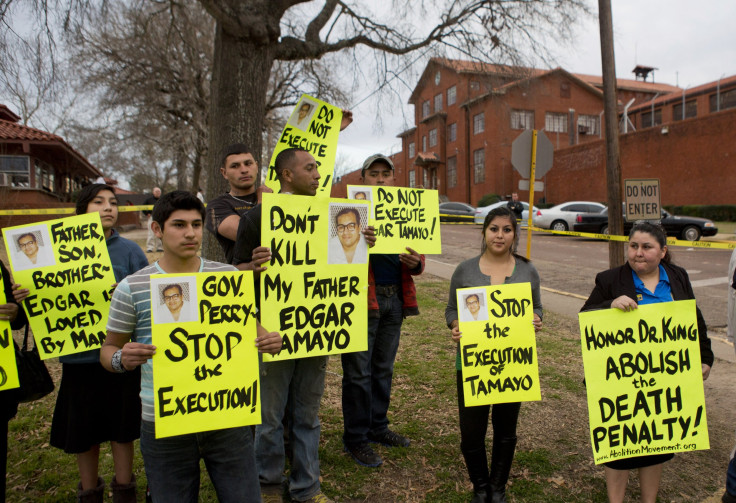Missouri, Georgia Execute Convicts Claimed To Have Mental Disability, Taking US Executions To 35

Authorities in Georgia and Missouri executed an inmate each on Tuesday night and early Wednesday, taking the total number of executions in the country this year to 35. Missouri inmate Paul Goodwin, 48, was given lethal injection early Wednesday, while Robert Wayne Hosley, 49, of Georgia, was executed Tuesday night.
Goodwin was found guilty of sexually assaulting a woman in St. Louis County and then beating her to death with a hammer in 1998, according to The Associated Press (AP). Goodwin was a former neighbor of the woman and suspected her of being responsible for his eviction from a boarding house. Lawyers defending Goodwin based their arguments on his low IQ of 73 to ask the court to spare his life. They had argued that executing him would lead to a violation of a Supreme Court law that bans giving a death sentence to mentally disabled people.
Mary Mifflin, Goodwin’s sister, wrote in a statement, according to AP, that the death penalty "is not a just punishment for his crime — an act that occurred out of passion, not premeditation, by a man with the mental capabilities of a child, not an adult."
Hosley, who was put on death row for killing a sheriff's deputy in 1995 after robbing a convenience store, was declared dead by lethal injection by authorities late Tuesday in the state prison in Jackson. Holsey had reportedly refused the sedatives offered to him before the execution, according to reports.
The U.S. Supreme Court had on Tuesday refused to block Hosley’s execution after his lawyers argued that the previous lawyer, Andrew Prince, was an alcoholic who also drank large quantities of vodka during Hosley's trial. They also claimed that Hosley was intellectually disabled but the court refused to accept the arguments.
"Robert Wayne Holsey is an intellectually disabled African-American man who was represented at trial by a chronic alcoholic who was more concerned about avoiding his own criminal prosecution than defending his client against the death penalty," Brian Kammer, his current lawyer, said during the trial, according to NBC News, an hour after which Hosley was executed.
Prince, who died in 2011, had lost his license and had been jailed for stealing money from his clients. He had also reportedly testified that he did not properly represent Hosley in court, Reuters reported. Kammer had also argued that Prince never presented to the court the issue of Hosley’s mental disability as a possible factor for the deputy's killing.
© Copyright IBTimes 2024. All rights reserved.






















